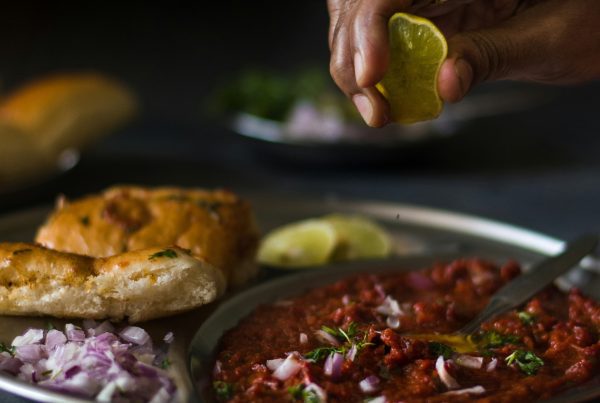Oluronke Taiwo uses obstacles, naysayers to fuel her determination to accomplish her goals
You don’t get as many professional credentials as Oluronke Taiwo has without an overabundance of determination.
“I have about six degrees, in total,” Taiwo says. Those degrees started with a Bachelor of Science (Education) from the University of Lagos in her home country, Nigeria, while she was working as a medical technologist.
Some of that determination is hereditary, she believes. She drew a lot of inspiration from her father, who worked his way to becoming the first Black general manager of the United Africa Company. But as it turns out, one pompous professor also pushed her to excel.
“It was one day, even though I was thriving as a technologist, when one professor just said something that made me mad. Even though I had four or five diplomas at that time, I didn’t have a Bachelor degree,” Taiwo says. She was seated in the academic lounge of the university when her professor said, “If you do not have a degree, you are not supposed to be in this lounge.”
Rather than let his cruel words push her aside, she used the fury she felt to propel herself forward.
“Those words from that professor just gave me this determination; I am going to be the best of whatever I’m doing,” Taiwo says. “I am going back to school, and I’m going to show them that ability. I didn’t leave my job, nobody knew I was doing my part-time degree.”
Married with three children, Taiwo not only earned that degree, but immediately took up studying for a Masters in Medical Microbiology as well, which she also earned, and became a full-time professor at the College of Medicine in Lagos.
That was a whole other lifetime ago for Taiwo. In 1998, she moved to Nova Scotia in order to conduct a study on the antibacterial activities of aqueous extracts from Nigerian chewing sticks. The research was completed and published, but she was pitched a curve ball.
“When the grant was over, I thought my supervisor was going to hire me, and didn’t,” Taiwo says. “So, I had to look for a job, because my family were joining me. The only job I got at that time was just personal care, a position I was in for four years while trying to get back into my science [career], but I didn’t.”
Still, that same determination that drove her before fuelled her once again. She became the house manager of a small option home, a facility where up to four persons with disabilities reside together in the community with the help of caregivers.
“I thought, ‘well, if I have to be in this line [of work], I have to be on top,’” Taiwo says. She wound up taking an interest not just in the lives of her wards, but also the duties of the social workers she would escort them to see. She learned more about the field, asking the social workers questions about the job.
“That interested me. I decided to go back to school.”
Once again, while fulfilling her roles as a wife and mother and continuing at her job, Taiwo went back to school, this time as a student of Dalhousie’s social work program. First she attained her Bachelor of Social Work and then her Masters in the same discipline.
“By the time I graduated in October, I was already the Black Student Advisor for Dalhousie and the University of King’s College, a position I still hold,” Taiwo says. She has been in the position nearly 13 years now. Taiwo has thrived in using her experience to encourage and support students who thought they could never do what she knew they could.
“Mrs. Taiwo was actually very supportive, she’s a very caring person,” says Oladiwura Eyitayo-Oyesode, who also happens to hail from Nigeria. She came to Dalhousie in 2016 to earn a Masters in Law and came to work under Taiwo at the Black Student Advisory Centre soon after. “We had this work relationship that wasn’t restricted to work. She was like a mother to me, having left Nigeria and being in Canada for the first time… she was also concerned about my academics, and even my personal life.”
“I’ve always been in the university, all my life, and I’ve always worked with students,” Taiwo says. “When I got the position as Black Student Advisor, it worked for me because it was also a combination of me coming back to the university, working with students once more. I had the opportunity to encourage students when they feel ‘I can’t do this, it’s too much.’ I would say, ‘my dear, you can do it.’”
Taiwo works to give students experiences outside the classroom. This includes birthday celebrations, scholarship receptions, Christmas parties, graduation celebrations, and public events. She also puts together academic supports, such as mentorship programs. That’s where she recently brought in one of her former students to share her story.
“This particular young lady went through a lot before she talked to me,” Taiwo says, adding this former student now works at the Sunnybrook Children’s Hospital in Toronto. “I brought her back in October last year, during our professional mentorship program, to speak about her failures and her successes, and the power of asking for support. That gave me that joy, having the opportunity to support students.”
Taiwo often leverages her own experiences to show students that, while they may face struggles and road bumps on the way and people who will tell them they can’t or don’t belong in a given field (or lounge), they can achieve anything they want if they have the determination and put in the effort.
“That’s the method I use. Tell them my own story,” Taiwo says. “And many have succeeded through that. Many have cried in my shoulders. I followed them through appeals. I have gone with them to support them. Advocate with their professors. I’ve been in graduations, like, every year.”
“I got my BSW at the age of 50,” she continues. “If I can do all that at my age, you can do it. You only need to sit down and figure out the supports you need to succeed. You can be what you want to be. You just have to work hard. That is what I push to my children and also to my students. Don’t let anyone push you aside. If they do, let that be your stepping stone to say, ‘I can do it.’”
“That phrase, ‘if I could do it, you can,’ is very typical of Mrs. Taiwo,” Eyitayo-Oyesode says. “She would share her experiences with everyone. I had very challenging times during my Masters, and even after. She would counsel me and tell me how she started from the beginning, too, as an immigrant with three children.
“She would inspire me with her experiences,” Eyitayo-Oyesode says. “And not just me; everyone that came to the centre… she still continues to. I’m still in touch with her, and we talk often. She fills me with encouraging words.”
Watch Oluronke’s Global interview in the clip below!





